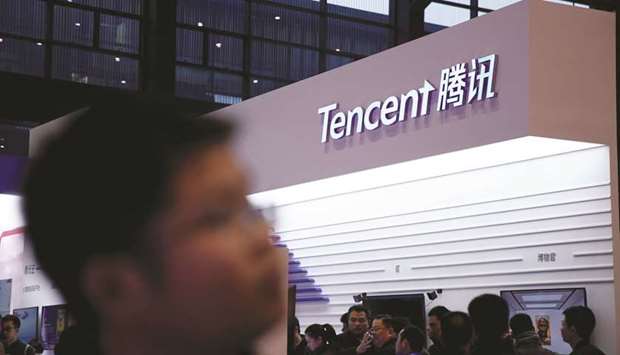Tencent Holdings Ltd said investment is central to its overall strategy and so it will maintain its scale of investment after an aggressive 2018, brushing aside near-term risks such as the bursting of China’s tech bubble as economic growth slows.
In the first detailed review of investment performance, President Martin Lau also said 2018 was Tencent’s best year as a record 16 portfolio companies went public, and that it had invested in more than 700 companies over the past 11 years.
The comments come as Tencent battles investor concerns of slowing growth in the video game and social media giant’s core businesses as the government increases scrutiny of online content and services.
Speaking at a closed-door investor conference in Beijing last month, Lau said business conditions in China’s internet sector are challenging and are likely to worsen before improving, according to a transcript of his speech reviewed by Reuters on Wednesday.
“Every time after major crises or bubbles, those who survive become the best companies,” Lau said. “So in my view, short-term pressure may intensify, but I’m optimistic for the long-term... Even though now is a relatively bad time, the best time awaits afterwards.”
Tencent was unable to make money from new games due to regulatory change for most of last year, during which time its stock lost 23% or $114bn in market value after peaking in January 2018.
China’s top content regulator has stopped accepting new applications to monetise video games as it processes a backlog built up during a nine-month hiatus last year, Reuters reported on Wednesday citing sources.
The move could further delay the revival of gaming revenue growth at companies such as Tencent.
Though the decline of Tencent’s market capitalisation last year was staggering, Lau referred to 2018 as Tencent’s best year in terms of investment since the department was formed in 2008, citing the number of IPO exits.
He said 63 of its portfolio companies over the past 11 years are now listed, and 122 are “unicorns” valued at more than $1bn.
The combined market value of companies in which Tencent holds a stake of 5% or more has exceeded $500bn, he said.
Tencent’s own market capitalisation now stands at $409bn, making the firm Asia’s second-largest after New York-listed Alibaba Group Holding. Lau dismissed criticism that Tencent had “turned into an investment bank” that prioritises investment than growing its core business.”Investment is a core strategy for Tencent” and allows it to focus on its core business, he said.

As such, he said Tencent u201cwould not scale backu201d investment in 2019 regardless of challenges such as economic slowdown in China and competition that is set to u201cincrease pressure for the entire (tech) sectoru201d. Tencent in November posted a better-than-expected 30% quarterly profit rise, as investment gains offset the impact of the freeze on new game approvals.
